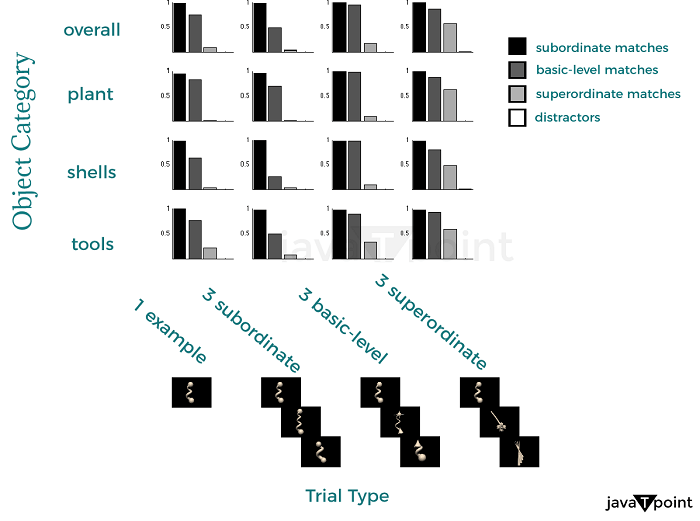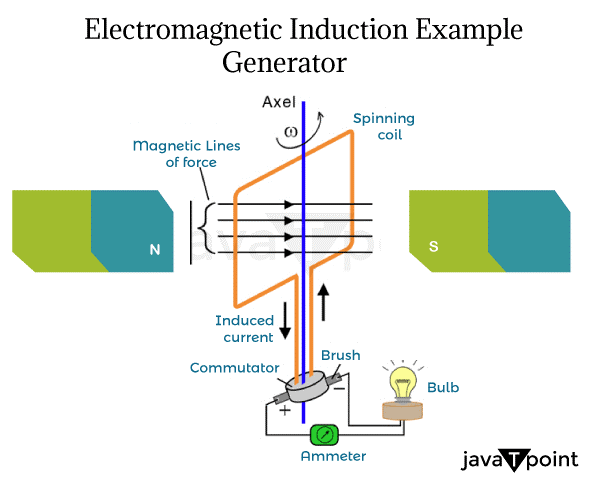Induction DefinitionInduction is a logical reasoning method that generates broad generalizations from particular findings or examples. It is a basic way of reasoning utilized in many domains, including math, physics, the study of philosophy, & social sciences. At its most basic, induction entails making discoveries of a specific phenomenon or group of occurrences followed by making an overall assumption based on those observations. This broad conclusion, called induction, creates predictions or generalizations about other related phenomena. Assume we notice that all of the swans we've seen are white. We can conclude that all swans are white based on this observation. However, the induction is not definitely correct because there could be non-white swans in other locations. Deductive reasoning is a scientific process in which a certain conclusion is drawn from a series of premises and assumptions. It is a top-down method that begins with broad ideas or theories and works down to a specific conclusion. If the assumptions are true & the reasoning is legitimate, the outcome must also be true in deductive reasoning. As a result, in subjects such as math, formal logic, and philosophy, deductive reasoning is a powerful instrument for constructing logical and conclusive arguments. Induction differs from deduction in that it begins with broad principles and then draws particular inferences based on those broad ideas. In math and formal logic, the deduction is frequently utilized, yet induction is used in empirical sciences, wherein data and observations are key. In sciences, where it is used to explain observed events, induction is a critical tool for developing hypotheses and theories. However, induction can only be regarded as reliable if it is substantiated by adequate evidence and is congruent with other established expertise in the field. Induction is also susceptible to some deceptions, such as the error of rapid generalization, which occurs when a conclusion is reached based on insufficient data. In conclusion, induction is a method of thinking involving broad generalizations from individual facts. It is an important tool in research and other professions, but it must be used cautiously and backed up by adequate data to be regarded as reliable. Role Of Induction in ScienceInduction plays an important part in research since it allows scientists to construct theories and hypotheses based on observation and evidence. Induction enables scientists to make broad generalizations regarding the world of nature, which they can then use to construct explanations for observable occurrences. Science is an interdisciplinary field that develops ideas and interpretations for natural events through experimentation, observation, and data analysis. Induction is an important tool in this process because it helps scientists to derive conclusions from specific observations made during their investigation. These findings are then utilized to develop hypotheses and ideas, which can be evaluated through additional experiments and data analysis. Assume a biologist notices that all individuals in a particular community of animals share a certain feature. Based on their findings, they can conclude that this feature is likely genetic and may be the product of genetic variation. The induction process may be applied to establish an assumption about the core genetic pathways causing the characteristic, which can be investigated further through experiments. 
Induction is also necessary for developing scientific hypotheses, which comprehensively explain natural occurrences supported by a vast body of data. In induction, researchers make observations and inferences about the natural world and then test these ideas through experiments and data analysis. If data continually support these inductions & hypotheses, they may eventually be merged into an overall theory that fully accounts for the natural phenomenon under research. It is crucial to highlight that inductive reasoning could be better, and biases and errors may hamper inferences based on observations. On the other hand, the scientific method includes a system of balance and verification in which inductions are checked through experiments and review by peers, and theories are constantly modified and amended in light of fresh evidence and observations. Finally, the purpose of induction in research is to allow researchers to develop theories and hypotheses based on observation and evidence. Induction is vital in scientific study because it allows scientists to generalize the natural world and explain observable events. Scientific ideas are produced through the method of induction, and our awareness of the universe as a whole is constantly refined and increased. Different Types of Inductive ReasoningInductive reasoning comes in a variety of forms that are regularly employed in various disciplines of study. Here are a few examples of the most prevalent types:

To summarize, inductive reasoning is a useful technique in numerous areas of study, as various types of inductive thinking are employed to derive inferences based on observations and evidence. We can increase our capacity to reason logically and form reliable inferences by learning the many types of inductive reasoning. Importance Of Inductive ReasoningInductive reasoning is a type of reasoning in which unique observations or instances are used to establish general conclusions. It is a fundamental critical thinking component that derives a sense of detailed information and facts. One of the key reasons for the importance of inductive reasoning is that it enables us to develop predictions based on previous experiences or observations. For example, suppose a particular drug is effective in helping a specific condition in a group of people. In that case, we may employ inductive reasoning to determine whether it will successfully treat similar individuals in the future. Inductive reasoning is additionally essential for scientific investigation. Scientists frequently use inductive reasoning to build hypotheses based on observed natural trends. Further research and observation can then be used to evaluate these ideas, leading to breakthroughs and improved world comprehension. Inductive reasoning additionally serves as an important problem-solving skill. We often uncover trends and patterns that assist us in building a solution by evaluating individual occurrences of an issue or situation. This method is often employed in industries like the analysis of data and research on markets, where enormous amounts of data must be processed and analyzed. Finally, creating critical thinking skills requires inductive reasoning. Individuals can improve their ability to analyze information and make informed judgments by learning to recognize patterns and generalize based on specific findings. Finally, inductive reasoning is an important part of analytical thinking and problem-solving. It enables us to make predictions based on previous experiences, form hypotheses for scientific investigation, and find trends and patterns that can aid in the resolution of complicated situations. People can become more successful thinkers & decision-makers in all parts of life by having excellent inductive reasoning skills. Strengths Of Inductive ReasoningInductive reasoning has various advantages, making it a useful tool for analytical thinking and problem-solving. Here are a few of the main advantages:
Finally, the advantages of inductive reasoning make it a valuable analytical thinking and problem-solving tool. It is a powerful strategy for analyzing complex material and making informed decisions because of its flexibility, accessibility, inventiveness, development of predictions, emphasis on real-world assessments, and support of critical thinking. Limitations Of Inductive ReasoningInductive reasoning, additionally referred to as inductive generalization and induction, involves drawing a conclusion from an array of observations or specific occurrences. Yet, inductive reasoning has some limitations, including inductive reduction. The method of simplifying a set of facts into a simplified collection of ideas or principles is called inductive reduction. While this method is effective for organizing information and data, it does have some disadvantages, which include:
In summary, while inductive reasoning has several strengths, such as adaptability, accessibility, creativity, and an emphasis on real-world observations, it also has limitations that can lead to generalization, lack of clarity, biases, data limitations, and lack of generalizability. Certain constraints must be considered when using inductive reasoning to derive conclusions or make judgments. ConclusionInductive reasoning is an effective method for analytical thinking, problem-solving, and scientific investigation. It enables people to draw broad inferences from specific observations, formulate ideas for future testing and research, and spot patterns and trends in large amounts of data. Inductive reasoning is adaptable and simple and promotes critical thinking and imagination. However, inductive reasoning has limitations, such as the possibility of overgeneralization, a lack of clarity, biases, data limitations, and a lack of generalizability. Despite these limits, inductive reasoning is a useful method for analyzing data, making educated choices, and creating fresh perspectives and comprehension of the world around us.
Next TopicIntestinal Obstruction Definition
|
 For Videos Join Our Youtube Channel: Join Now
For Videos Join Our Youtube Channel: Join Now
Feedback
- Send your Feedback to [email protected]
Help Others, Please Share










